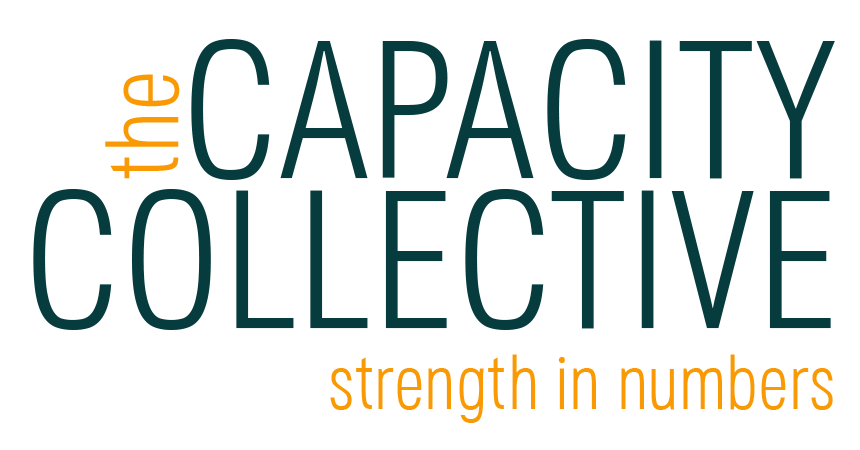The Culturally Responsive Measurement Tool: Protective Factors (CRMT-PF)
The Culturally Responsive Measurement Tool – Protective Factors (CRMT-PF) is an instrument designed to measure protective factors in families. The tool was adapted from the Protective Factors Survey Version 2 (PFS-2) from the FRIENDS National Resource Center for Community-Based Child Abuse Prevention. It was updated with the support of the Resilient Families Advisory Council between 2020 and 2022 to ensure the instrument was culturally responsive for diverse families in King County. It has been community validated in English to support the work of early learning programs serving King County families with children under the age of five.
Background
Since 2020, Best Starts for Kids has been working with The Capacity Collective to develop the CRMT-PF for organizations in King County to use, with the goal of developing a culturally responsive, multilingual tool to measure protective factors for families with children. Best Starts for Kids hopes the tool will be used to measure outcomes related to protective factors for community designed promotion, prevention, and early intervention programs for families with children. The Capacity Collective and Best Starts for Kids have shared back findings with families who have tested the survey, advisory council members, and the larger King County community.
In 2020, The Capacity Collective convened an advisory council (the first Resilient Families Advisory Council) to begin the process of reviewing and revising the Protective Factors Survey Version 2 (PFS-2). The RFAC members came from the key communities that Best Starts for Kids identified (see below for a list), with more than one person per community represented to minimize burden. Members were from service-providing organizations within and outside of the Best Starts for Kids ecosystem; were compensated, both monetarily and with opportunities for professional development; and were a blend of direct service and program management staff.
In 2021, after the initial revisions provided by the first RFAC, a second RFAC was convened to lead a community-based validation process with the new instrument. This process was multi-tiered and involved qualitative feedback in the form of focus groups as well as statistical validation.
In 2023, the English language version of the tool underwent a pilot implementation with two community-based organizations. The results of this pilot implementation informed the tools that The Capacity Collective developed to support organizations in implementing the CRMT-PF, which can be found at the links at the top of this page. Best Starts for Kids and The Capacity Collective also have translated and validated the CRMT-PF in four additional languages in 2023; Spanish, Somali, Simplified Chinese, and Vietnamese.
Who Should Use the CRMT-PF?
- Early Learning Programs
- Programs serving families with children under the age of five
- Programs that want to focus on family strengths rather than deficits
- Programs wanting to understand their client’s current support systems
- Programs wanting to understand change in support systems over time in program
Why Should We Use the CRMT-PF?
- The CRMT-PF is the only assessment of its kind that has been community validated for use with diverse communities, such as those who live in King County.
- The CRMT-PF gives programs (and the county) a snapshot of how families are doing, and where more supports may be needed. During the validation process we heard from community that the tool was a great conversation starter.
- The CRMT-PF helps programs measure impacts on protective factors to see if they are building resilience in families they serve.
When should we use the CRMT-PF?
- The CRMT-PF can be used once, or multiple times across a client’s time in a program to see changes over time.
- For programs that are multiple years, the CRMT-PF can be given at regular intervals, such as 6 months or 1 year, to monitor change in protective factors over time more regularly.
- For short programs, the CRMT-PF can be given at the start of the program to provide a snapshot of the family’s protective factors, including support systems. The tool can help identify immediate needs to support referrals to other programs or resources.
Community Validation
The English CRMT-PF was community validated between 2020 and 2022 with key communities identified by King County:
- Black & African American
- Indigenous/American Indian/Alaska Native
- Hispanic or Latino/a/x
- Asian (Chinese, Vietnamese)
- African (Somali, Ethiopian)
- Middle Eastern or North African
- Pacific Islander
- Families of children with special needs
Community Validation
The CRMT-PF underwent a community validation process to test the instrument in five languages:
- English
- Somali
- Spanish
- Simplified Chinese
- Vietnamese
Implementation Study
After community validation, each CRMT-PF instrument underwent an implementation study with the support of Community-Based Organizations serving families in King County. These implementation studies helped The Capacity Collective ensure the implementation of the CRMT-PF into programs will be culturally-responsive for families, and be both meaningful and easy-to-use for the programs who will use the instrument.
Special Thanks
Thank you to the many individuals and organizations who made the development and testing of this instrument possible!
- 2021 Resilient Families Advisory Council
- 2022 Resilient Families Advisory Council
- FRIENDS National Center for Community-Based Child Abuse Prevention
- Community-Based Organizations in and around King County
- Reviewers at King County
- Dr. Susan Spieker and Dr. Monica Oxford, University of Washington Barnard Center
- Debbie Peterson, Center for the Study of Social Policy
- Audrey Royston and Araceli Efigenio
More About the CRMT-PF
Presented at the Best Starts for Kids Summit, October 2023
Presented at the American Evaluation Association, November 2022
Presented at the National Home Visiting Summit, March 2022
This work is made possible by King County’s Best Starts for Kids (BSK) levy

